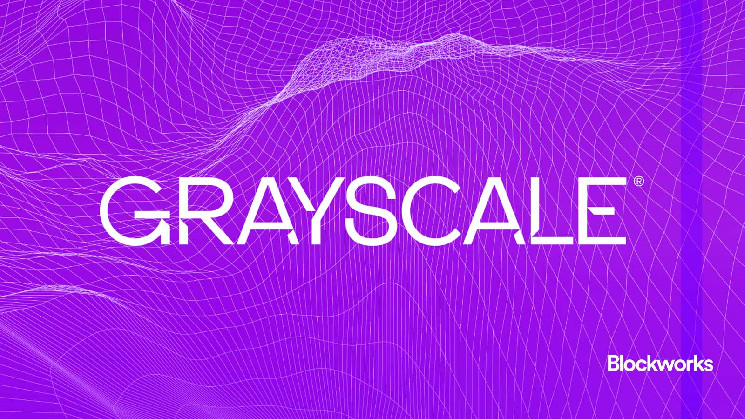The crypto asset manager Grayscale joined the Solana ETF fray yesterday.
NYSE Arca filed a 19b-4 form notifying the SEC that it hopes to list and trade shares of Grayscale’s existing Solana Trust. With Grayscale in, only BlackRock, Fidelity, ProShares and Ark are among the major crypto ETF issuers yet to file for Solana ETFs. But all these prospective Solana ETF issuers may have an achilles heel: The ETFs as currently proposed would not offer investors staking rewards.
This omission isn’t necessarily by choice — SOL ETF issuers followed the precedent set by ether ETFs, which excluded staking rewards to comply with SEC guidelines. The details of the conversations between ether ETF issuers and the SEC remain unclear. However, it seems likely that the SEC had concerns about staking rewards being classified as securities and the potential slashing risks associated with staked ETH.
So when firms started filing for Solana ETFs, they left staking out from the jump. Throughout Solana’s unfolding ETF saga, issuers have repeatedly told me that the benefits of getting regulated exposure to Solana’s price action directly in one’s brokerage account make the products attractive despite their lack of staking rewards.
But the opportunity cost of cutting out staking is much higher for Solana than for Ethereum. Ethereum’s current staking APR is 3.4%, according to the Ethereum Foundation. Solana’s average staking APR over the past week has been 11.4%, according to data from 21.co. SOL’s staking reward isn’t always that high, but even in the relative doldrums of August it was yielding over 8%.
The lack of staking rewards would leave SOL ETF buyers diluted by Solana inflation, which happens when validators receive tokens for running the blockchain. As Dan Smith explained on a recent episode of the Lightspeed podcast, those token emissions get passed onto Solana stakers via staking rewards, so only non-stakers lose value from SOL inflation.
Leah Wald, CEO of Sol Strategies, said Solana’s appeal is broader than just staking yield, but noted that “staking is undeniably a value-add.” Sol Strategies, which is publicly traded in Canada, stakes Solana and runs a Solana validator.
This could all change of course, since perhaps Donald Trump’s presumptive SEC chair nominee Paul Atkins will be more lenient on issuers and allow staking rewards to stand in applications. Todd Ruoff, CEO of decentralized AI shop Autonomys, said the Trump Administration is “likely to approve staking options in the near future.”
There’s no guarantee of that happening, so in a sense, the current question on Solana ETFs is this: Will investors take a 10% lower return to get access to a regulated investment wrapper?
 blockworks.co
blockworks.co
